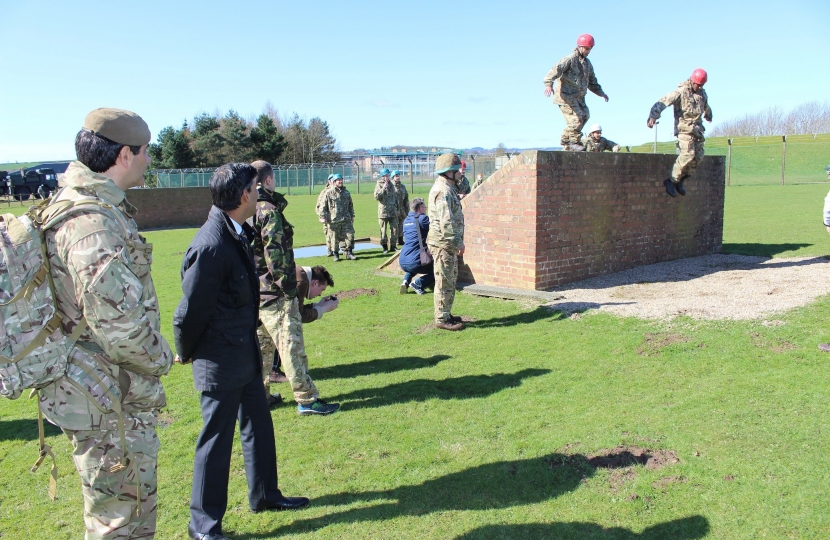
I HAVE written before about one of the strengths of our Parliamentary democracy being that MPs represent geographical constituencies.
Among other benefits, it provides the opportunities for MPs to pick up on a good idea or good practice in their patch, take it back to Westminster and seek to spread it further afield.
Recently I witnessed a really good project at work in the Richmond constituency. I think it is so good, I am going to speak to Ministers about it and suggest it is rolled out elsewhere.
The project is a series of British Army Super Camps pioneered by the 4th Infantry Division based at Catterick.
Every few months a group of 250-300 school students, typically from Teesside and West Yorkshire, spend a long weekend with the Army at Marne Barracks where, over two and half action-packed days, they experience Army life through a wide range of activities.
On the first day the students are able to enjoy an indoor electronic shooting range, work through command tasks and drill before learning about outdoor survival and cooking and fieldcraft while staying overnight at Wathgill Camp on the Catterick Training Area.
On the second day they are introduced to a variety of trades within the Army with stands showing the work of the Royal Military Police, the Royal Electrical and Mechanical Engineers, the Royal Artillery as well as Infantry and Medical stands.
As I saw when I called at Marne Barracks to observe a Super Camp in progress, one group was having great fun tackling the assault course - scaling walls, crossing ditches - while another group was being shown how Army medics would assess a casualty on the battlefield.
Lt Col Mark Hunter, who runs the camps with his colleagues and the support of Col Andrew Hatfield, the Deputy Commander of the 4th Infantry Brigade, explained the weekends have numerous benefits for the students.
Firstly, they get to experience activities they simply would not have the chance to do at school and develop skills they can use later in life. Secondly, it helps the Army engage students from black and minority ethnic communities, creating a positive impression of the British Army. This is helpful both for future Army recruitment and also for fostering strong integration and promoting the idea of a common British identity in communities where this might not otherwise be the case.
With record levels of employment in this country, the Army sometimes struggles to recruit all the young people it needs. These “taster” weekends – which have been experienced by 850 students so far – will hopefully lead to more young people, particularly from non-traditional backgrounds – considering the many opportunities the British Army has to offer.
The costs of the Super Camps are minimal. The Army has the personnel and facilities already in place. Attendance at the schools is free for the students although their teachers do have to be prepared to accompany them on the camps.
I was hugely impressed by what I saw at Marne Barracks and I can see no reason why this activity should not by pursued by other Brigades within the Army. It’s a great idea developed here in North Yorkshire and I’ll be speaking to the relevant Defence Ministers to suggest it is looked at nationwide.
